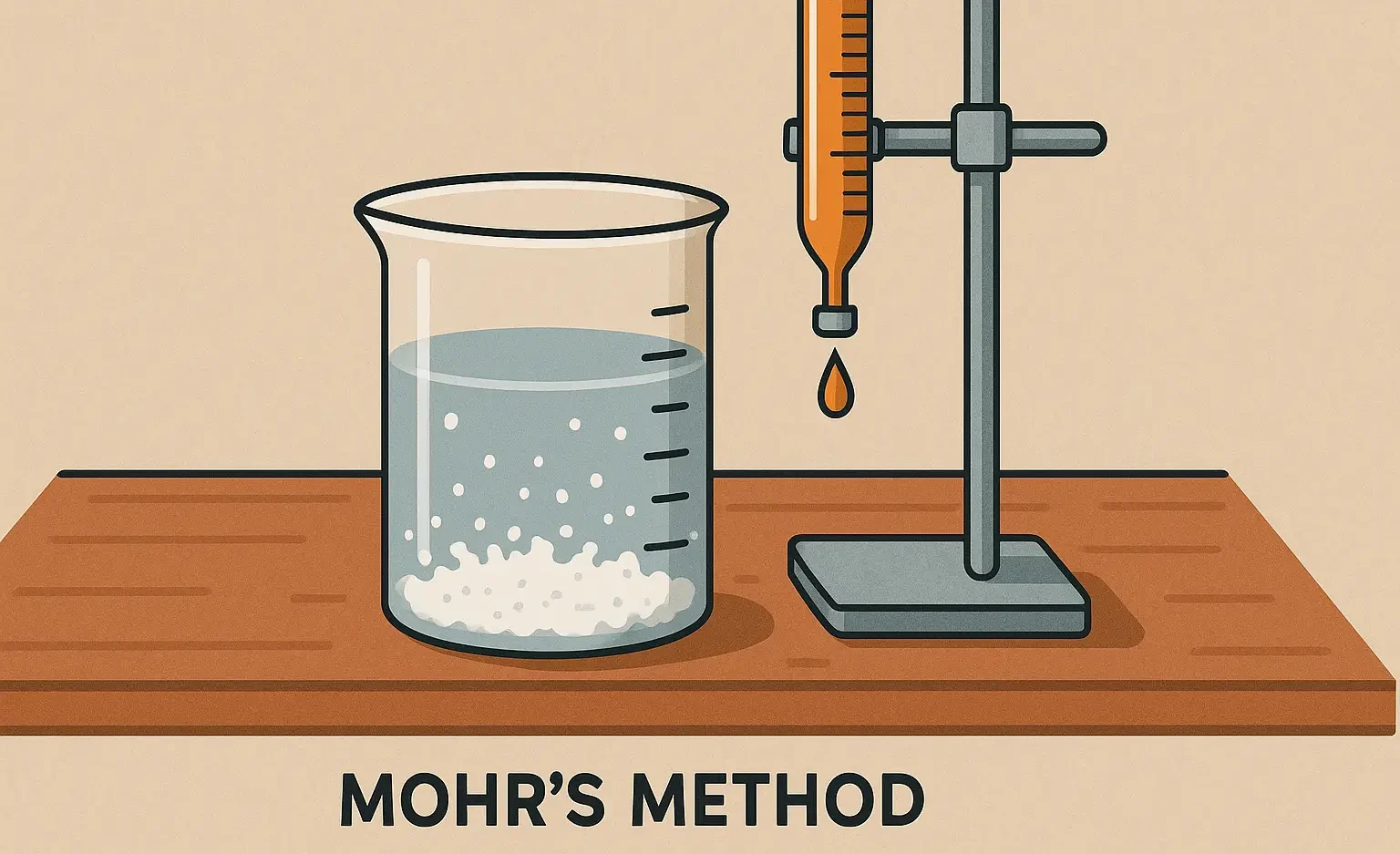Introduction to Mohr’s method:
- Mohr’s method is a precipitation titration used to determine chloride ion concentrations in a solution.
- It uses silver nitrate (AgNO₃) as the titrant, forming a white precipitate of silver chloride (AgCl).
- Potassium chromate (K₂CrO₄) is used as the indicator, which forms a red precipitate of silver chromate (Ag₂CrO₄) at the endpoint.
Principle to Mohr’s method:
- The method is based on the selective precipitation of chloride ions before chromate ions.
This is a sample ad placement!
Reactions:
- Ag⁺ + Cl⁻ → AgCl (s)
- After all chloride has precipitated, excess Ag⁺ reacts with chromate ions:
- 2Ag⁺ + CrO₄²⁻ → Ag₂CrO₄ (s, red)
- The appearance of a red precipitate of silver chromate indicates the endpoint.
Procedure:
- Pipette a known volume of the chloride-containing solution into a flask.
- Add distilled water to dilute the sample.
- Add 2-3 drops of potassium chromate indicator (solution turns yellow).
- Titrate with standardized AgNO₃ solution, forming a white AgCl precipitate.
- Continue titrating until a faint reddish-brown precipitate (Ag₂CrO₄) appears, indicating the endpoint.
This is a sample ad placement!
Theory:
- Silver chloride precipitates first due to its lower solubility product (Ksp) compared to silver chromate.
- Once all chloride is consumed, excess silver reacts with chromate to form Ag₂CrO₄, signaling the endpoint.
Calculation:
-
$C_{\mathrm{Cl^-}} = \frac{C_{\mathrm{AgNO_3}} \times V_{\mathrm{AgNO_3}}}{V_{\mathrm{sample}}}$
- Where:
- $C_{\mathrm{Cl^-}} = \text{concentration of chloride ions}
C_{\mathrm{AgNO_3}} = \text{concentration of } \mathrm{AgNO_3} \\
V_{\mathrm{AgNO_3}} = \text{volume of } \mathrm{AgNO_3} \text{ at the end point} \\
V_{\mathrm{sample}} = \text{volume of chloride-containing sample}$ - This arrangement simplifies the content while maintaining clarity.
This is a sample ad placement!
Thank you for reading from Firsthope's notes, don't forget to check YouTube videos!

